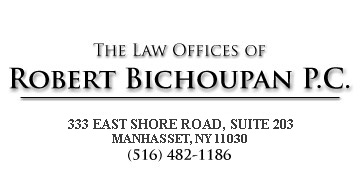Articles > Trusts & Estates
| Gift and Estate Tax Exemptions for 2025 | Each year, the IRS (and New York State) provides updated figures for estate and gift tax exemptions. The federal estate and gift tax exemption will be $13,990,000 per individual for 2025 gifts and deaths, up from $13,610,000 in 2024. The NYS estate tax exemption for 2025 will be $7,160,000 million, up from $6,940,000 in 2024. In addition, the annual gift tax exclusion is increasing due to inflation.
MORE>> |
| A New Way To Transfer Real Estate Upon Passing | Transfer on Death Deeds - An Imperfect Tool
On April 20, 2024, New York State introduced a new way for property owners to transfer real estate after they pass away and without need for probate or administration. This new option, known as a Transfer on Death (TOD) deed, allows owners to designate those who will automatically inherit property such as a house, condo or vacant land upon the owner’s passing. Those with a bank account containing a transfer on death designation may be familiar with the idea. Owners will retain full control of their property while they are alive, including the right to sell, mortgage, change beneficiaries, or even revoke the deed. This may allow greater control than a deed merely reserving a life estate. However, this new option has serious limitations and may not be suitable for everyone's situation.
MORE>> |
| Did You Know? | DID YOU KNOW?
There is a new law effective in 2024 which now requires the reporting of corporate ownership for corporations opened at any time - past or future - and another new law effective in 2024 which abolishes the $500 credit at real estate closings and now mandates the provision of a Property Condition Disclosure Statement.
Do you know how these new laws may affect you, and open you to potential liability?
MORE>> |
| NEW POWER OF ATTORNEY FORM & RULES EFFECTIVE JUNE 13, 2021 | As of June 13, 2021, there is a new statutory short form power of attorney in effect with new execution requirements and obligations. Nonetheless, an existing previously executed power of attorney, if valid when executed, will continue to be considered valid and does not need to be re-executed. Execution requirements of a power of attorney are complicated and extremely specific, which is why they are best executed under supervision of counsel.
Whether one is an agent presenting a power of attorney, or the recipient of a power of attorney being presented for use, it is important to be aware that it is unlawful to dishonor or reject a properly executed power of attorney without reasonable cause, and that there is a 10 day deadline for action after presentation of a statutory short form power of attorney. The statute sets forth various reasons for reasonable rejection of a power of attorney, including but not limited to missing signature, invalid notarization, unacceptable identification, and knowledge or belief of the principal’s death or, in the case of a nondurable power of attorney, incapacitation. The statute also sets forth specific reasons for rejection which are deemed unreasonable basis for dishonoring a valid power of attorney, including that the power of attorney is not on a form prescribed by that third party to whom it is presented. Care must be taken as unreasonable or wrongful rejection of a valid power of attorney may result in the imposition of monetary damages, including attorneys’ fees.
|
| Preparing for College | Once your child reaches their 18th birthday, they are legally an adult and you as their parents will suddenly no longer have authority to speak with your child’s doctors, access their health or financial records, and make decisions on their behalf. Therefore, we have always advocated having your 18 year old execute a POWER OF ATTORNEY and a HEALTH CARE PROXY giving you legal authority to make important decisions for them in the event they become incapacitated or incompetent due to illness or other circumstances. These documents can appoint a parent as “agent” authorized to make medical decisions and handle financial affairs in the event the adult child is unable to do so for themselves.
Today, sending your child off to a college campus during and after the Covid 19 Pandemic makes executing these documents, as well as a HIPAA authorization form, even more important. So, along with bed sheets and notebooks, send your college student off with some peace of mind by arranging for execution of a POWER OF ATTORNEY and HEALTH CARE PROXY.
MORE>> |
Why include a Trust in your will?  * * | Why include a Trust in your will? A Testamentary Trust will allow you to bequest cash and/or property to a loved one, and to have the peace of mind that the monies will still be there for them when they need it, regardless of their circumstances.
MORE>> |
Trusts & Estates Glossary of Terms  * * | Provided here is a list of legal terms frequently used when dealing with Trusts & Estates, and a simple explanation of their meanings. MORE>> |
Living Trusts  * * | The Pros and Cons of Living Trusts MORE>> |
Estate Plannning  * * | Read about the six basic estate planning documents which, once executed, can help avoid unnecessary distress, delays or high legal bills down the road. MORE>> |
| Estate planning for young adults | Now that your child is 18…
An 18 year old, while still a child in your household in your eye, is actually a legal adult under the law. That means that the law recognizes their right to privacy and to govern their own affairs.
What does this mean for you as a parent sending your child off to college (or anywhere else for that matter)? Access to your child’s medical records, financial accounts or even their college grades can be barred without your child’s consent. MORE>> |
| Your Loved One Has Passed. Now What? | Your loved one has passed and their assets need to be handled. Now what? MORE>> |
| Estate planning vs. convenience banking | Estate planning versus convenience banking: Does setting up a joint bank account with your elderly parent confer an ownership interest in that account to you, or is it merely a “convenience” account in which you have no ownership interest upon your parent’s passing? MORE>> |
* These forms are not intended for execution, but rather are merely informational. Prior results do not guarantee a similar outcome. All information posted is general advice only, based upon the rules of NYS, and is not intended to be a substitute for personal legal advice. Although information provided here was accurate as of the date of posting, laws change frequently and rules in other jurisdictions may differ. Therefore, readers should not rely upon these postings but should consult an attorney to discuss their specific factual situation.
|





